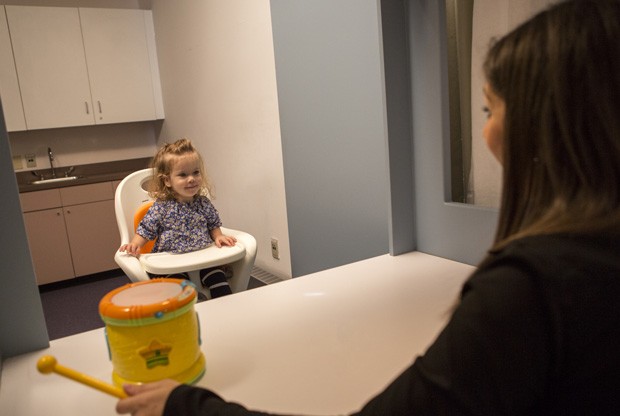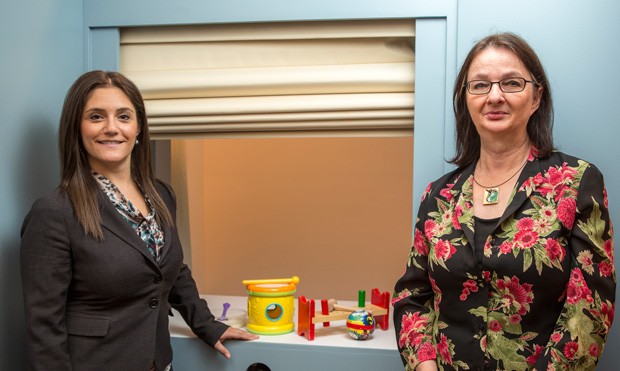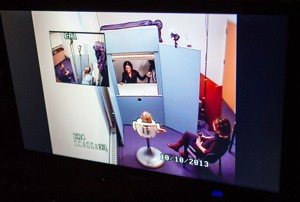Your baby knows when you're faking it
When your feelings and reactions don’t align, can kids tell there’s something wrong? New research from Concordia proves that they can — even when they’re as young as 18 months old.
In a study recently published in Infancy: The Official Journal of the International Society on Infant Studies, psychology researchers Sabrina Chiarella and Diane Poulin-Dubois demonstrate that infants can detect whether a person’s emotions are justifiable given a particular context. They prove that babies understand how the meaning of an experience is directly linked to the expressions that follow.
The implications are significant, especially for caregivers. “Our research shows that babies cannot be fooled into believing something that causes pain results in pleasure. Adults often try to shield infants from distress by putting on a happy face after a negative experience. But babies know the truth: from as early as 18 months, they can implicitly understand which emotions go with which events,” says Psychology Professor Poulin-Dubois.
She and PhD candidate Chiarella recruited 92 infants at the 15-month and 18-month mark. In a lab setting, the babies watched an actor perform several scenarios in which emotional reactions went with or against pantomimed experiences. In one of these, a researcher demonstrated mismatched emotion by acting sad when presented with a desired toy; in another, she expressed an emotion that went with the experience by pretending to be in pain from a hurt finger.
At 15 months, the infants did not show a significant difference in reactions to these events, physically empathizing with the researcher’s “sad face” whether it was justified or not. This indicates that the understanding of the link between an an emotional experience and a facial expression is an ability that has yet to develop at that stage.
At 18 months, however, the infants clearly detected when a facial expression did not match an experience. They spent more time looking at the researcher’s face, and checked back more frequently with the attendant caregiver to gauge the reaction of a trusted source. They also only showed empathy towards the researcher when her sad face was warranted — so when she acted unhappy or in pain in an appropriate situation.
Chiarella explains that the indiscriminate show of concern to sad faces in the 15-month-olds is an adaptive behaviour. “The ability to detect sadness and then react immediately has an evolutionary implication. However, to function effectively in the social world, children need to develop the ability to understand others’ behaviours by inferring what is going on internally for those around them.”
The researchers are currently examining whether exposure to an emotionally unreliable individual will affect infants’ willingness to help or learn from that individual.
Partners in research: This research was supported by the Fonds québécois de la recherche sur la société et la culture, the Social Sciences and Humanities Research Council of Canada, and the National Institute of Child Health and Human Development. Both researchers are members of Concordia’s Centre for Research in Human Development.




